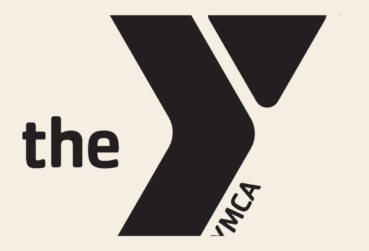Are You Paying Yourself Correctly?
As a new business owner, you have plenty to keep you up at night. But nothing is more stressful than bookkeeping woes. One of the most common errors in a small business relates to how the owner takes money out of the business. Owners need to be careful about how they pay themselves because it affects their books and their taxes. The owner payments are determined by business type. The next step is understanding the difference between the two most common forms of “owner salary.”
Business Owner Draw/Salary: C Corporation
Draws from a C Corporation are taken as dividends limited to net income and paid according to stock ownership. The earnings are subject to a flat 21% corporate tax rate and they are taxed again at the personal level. Dividends are not deductible inside the business, but they are subject to preferential tax rates on the owner’s personal tax return. To avoid double taxation, owners can take salary/bonus that is deductible at the corporate level and taxed as wages at the personal level. This is called “zeroing out the corporation.” Business owners of C Corporations are cautioned not to treat draws as a traditional salary. Positive cash flow is an essential requirement if you want to ensure the financial stability of your business.
Distributive Share: Partner, Multi-member LLC, S corporation owner
A business with multiple members/owners can also be taxed as a partnership or S corporation. Income, loss, deductions, and credits from these entities are allocated to owners based on their distributive share. These entities do not pay income tax directly and instead pass that activity out to the owners who report their share of the activity on their personal return.
The percentage of share is usually spelled out in a partnership agreement and always totals 100%. When no agreement exists, distributive shares correlate to each partner’s share of ownership. The calculations are based on the following factors:
- Interests in the economic or taxable income of the partnership
- Capital contribution
- The rights of partners to partnerships assets should the company be sold or file for bankruptcy
The process for taking a distributive share requires an accounting of the total net income. That profit is then divided among the partners, according to their share or the partnership agreement.
The following table shows the best practices of how owners should pay themselves and how that pay relates to their tax return.
| Business Type/Owner Status | How to Pay Yourself | Tax Return to File | Subject to Self-employment Tax |
| Partner | Distributive share | Schedule K-1 for 1040 | Yes |
| Sole Proprietor | Draw | Schedule C for 1040 | Yes |
| Single-member LLC | Draw | Schedule C for 1040 | Yes |
| Multiple-member LLC | Distributive share | Schedule K-1 for 1040 | Yes |
| Corporate owner | Dividends | Dividend income on 1040 | Not on dividends |
| S corporation owner | Distributive share | Schedule K-1 for 1040 | No |
| Corporate/S corporate owner | Paycheck | W-2 income on 1040 | FICA (employee) |
Other Considerations: Characteristics of entity type
There are other factors to consider regarding entity type including flexibility, liability protection, tax benefits, and many others.
Professionals at Cordell, Neher & Company are happy to discuss owner wage, entity types, and any other accounting and tax concerns that you might have.
Events & Deadlines
Community Service Day
Cordell Neher & Company, PLLC 175 E Penny Rd #1, Wenatchee, United StatesCNC Newsletter
Subscribe and stay informed on policy changes that could have an impact on you.
Footer Contact
Check the background of your financial professional on FINRA's BrokerCheck®
Privacy & Usage: The information on the Cordell, Neher & Company, PLLC website is provided with the understanding that it should not be substituted, in any way, for consultation with a professional Certified Public Accountant, accountant, tax, legal or other competent advisor. Cordell, Neher & Company, PLLC makes every attempt to ensure that the information contained on their websites are obtained from reliable sources, but is not responsible for any errors and/or omissions or from the results obtained from the use of any information. This site contains links to servers maintained by other organizations. Cordell, Neher & Company, PLLC cannot provide any warranty regarding the accuracy or source of information found on any of these servers, the content of any file the user might use to download from a third-party site, and is not responsibility for the content found on any of these servers or for any links these servers maintain with other servers.
Avantax affiliated advisors may only conduct business with residents of the states for which they are properly registered. Please note that not all of the investments and services mentioned are available in every state. Securities offered through Avantax Investment ServicesSM, Member FINRA, SIPC, Investment Advisory services offered through Avantax Advisory ServicesSM,Insurance services offered through an Avantax affiliated insurance agency. 3200 Olympus Blvd., Suite 100 Dallas, TX 75019 972-870-6000.
Avantax financial professionals may only conduct business with residents of the states for which they are properly registered. Please note that not all of the investments and services mentioned are available in every state. Securities offered through Avantax Investment Services.SM, Member FINRA, SIPC. Investment Advisory Services offered through Avantax Advisory Services SM. Insurance services offered through an Avantax affiliated insurance agency. Method 10® is property of Avantax Wealth Management.SM All rights reserved 2020. The Avantax family of companies exclusively provide investment products and services through its representatives. Although Avantax Wealth Management does not provide tax or legal advice, or supervise tax, accounting or legal services, Avantax representatives may offer these services through their independent outside business. This information is not intended as tax or legal advice. Please consult legal or tax professionals for specific information regarding your individual situation.
The Avantax family of companies exclusively provide financial products and services through its financial representatives. Although Avantax Wealth ManagementSM does not provide or supervise tax or accounting services, Avantax Representatives may offer these services through their independent outside business. Content, links, and some material within this website may have been created by a third party for use by an Avantax affiliated representative. This content is for educational and informational purposes only and does not represent the views and opinions of Avantax Wealth ManagementSM or its subsidiaries. Avantax Wealth ManagementSM is not responsible for and does not control, adopt, or endorse any content contained on any third party website.
This information is not intended as tax or legal advice. Please consult legal or tax professionals for specific information regarding your individual situation. Investments & Insurance Products: Are not insured by the FDIC or any federal government agency- Are not deposits of or guaranteed by the bank or any bank affiliate- May lose Value
Avantax Investment ServicesSM and Avantax Advisory ServicesSM are not affiliated with CNC Financial Group, LLC.
© 2020 Cordell, Neher & Company PLLC • Designed by Pixel to Press











